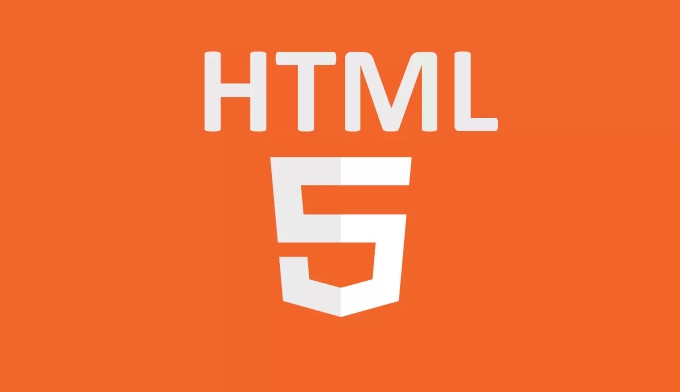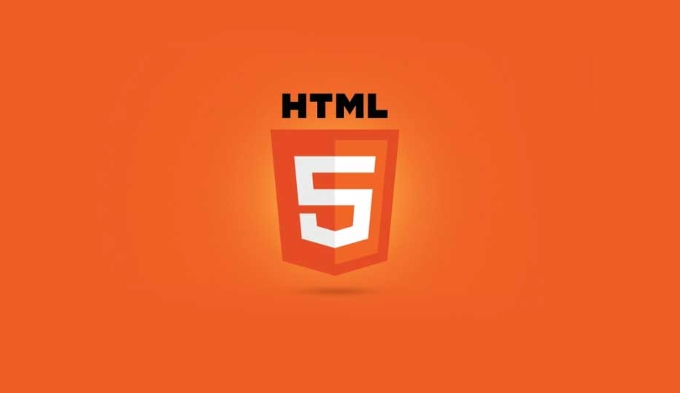 Web Front-end
Web Front-end
 HTML Tutorial
HTML Tutorial
 How to create a table with merged cells (colspan and rowspan) in HTML?
How to create a table with merged cells (colspan and rowspan) in HTML?
How to create a table with merged cells (colspan and rowspan) in HTML?
Jul 11, 2025 am 02:47 AMTo create a table that merged cells in HTML, use the colspan and rowspan properties. 1. Colspan is used to merge cells horizontally, setting a position of one cell occupying multiple columns. For example, when the table header spans two columns, using colspan="2"; 2. rowspan is used to merge cells vertically, making cells span multiple rows, suitable for vertical content merging; 3. When using it, you need to pay attention to adjusting the number of other cells to avoid misalignment. It is recommended to sketch first and then encode it to keep the structure clear, and test browser compatibility to avoid maintenance difficulties due to excessive nesting.

Create a table with merged cells in HTML, mainly using colspan and rowspan properties. These two properties control the merging of several cells horizontally and vertically in a cell. Once you master how they are used, it will be more flexible to build complex-structured tables.

Understanding colspan: Merge cells horizontally
colspan is used to make a cell "occupy" multiple columns. For example, if you want a table header to span two columns, you can set colspan="2" .

Common usage scenarios :
- When a table has multiple groups, use it to make a big title
- Data in a row needs to be displayed across columns, such as remarks information
<table border="1">
<tr>
<th colspan="2">Personal Information</th>
<th>Contact information</th>
</tr>
<tr>
<td>Zhang San</td>
<td>28 years old</td>
<td>13800001111</td>
</tr>
</table>In this example, the header of the "Personal Information" occupies two columns, and the following data normally displays three columns.

Note :
- After
colspan="n"is set, the number of other cells in this row should be reduced accordingly, otherwise the layout may be disordered. - If the next row does not have a restructuring structure, it may cause the table to be misaligned.
Understanding rowspan: Merge cells vertically
rowspan is to make a cell span multiple rows vertically. For example, you want a certain content to occupy two or more rows of space in a vertical direction.
Common usage scenarios :
- There are duplicate items in the table that can be merged into a large cell
- When there are many data structures related up and down, it improves readability
<table border="1">
<tr>
<td rowspan="2">Left content</td>
<td>The right side of the first line</td>
</tr>
<tr>
<td>The right side of the second line</td>
</tr>
</table>In this example, the "left content" appears only once, but it occupies the height of two lines.
Operation skills :
- The value of
rowspanrepresents how many rows the cell will cover (including the row you are in) - After the merge, there is no need to write the corresponding position
<td> or <code><th> in the subsequent lines, otherwise they will be squeezed out.<hr> <h3 id="Things-to-note-in-practical-applications"> Things to note in practical applications</h3> <p> Although <code>colspanandrowspanare practical, improper use can easily cause table confusion, especially when nested multi-layer merges. Here are some practical suggestions:- Draw sketches first and then encode : It is recommended to draw a structure diagram for complex tables first and mark which cells are merged, so that writing code is not prone to errors.
- Keep the logic clear : merge too many can make HTML structures difficult to maintain, especially dynamically generated tables.
- Test the display effect of different browsers : Although mainstream browsers support these two properties, compatibility needs to be checked in case of complex styles.
- Avoid over-necking : If the table structure is too complex, consider whether you can optimize the display by splitting the table, adding comments, etc.
Basically that's it. By mastering the basic usage of
colspanandrowspanand understanding their impact on table structure, you can deal with most table merging needs.
The above is the detailed content of How to create a table with merged cells (colspan and rowspan) in HTML?. For more information, please follow other related articles on the PHP Chinese website!

Hot AI Tools

Undress AI Tool
Undress images for free

Undresser.AI Undress
AI-powered app for creating realistic nude photos

AI Clothes Remover
Online AI tool for removing clothes from photos.

Clothoff.io
AI clothes remover

Video Face Swap
Swap faces in any video effortlessly with our completely free AI face swap tool!

Hot Article

Hot Tools

Notepad++7.3.1
Easy-to-use and free code editor

SublimeText3 Chinese version
Chinese version, very easy to use

Zend Studio 13.0.1
Powerful PHP integrated development environment

Dreamweaver CS6
Visual web development tools

SublimeText3 Mac version
God-level code editing software (SublimeText3)

Hot Topics
 Explain the purpose of the role attribute in ARIA.
Jun 14, 2025 am 12:35 AM
Explain the purpose of the role attribute in ARIA.
Jun 14, 2025 am 12:35 AM
ARIA's role attribute is used to define the role of web elements and improve accessibility. 1. Role attribute helps assistive technology to understand the functions of elements, such as buttons, navigation, etc. 2. Use role attributes to assign specific roles to non-semantic HTML elements. 3. The role attribute should be consistent with the element behavior and be verified by the accessibility tool test.
 HTML and Design: Creating the Visual Layout of Websites
Jun 14, 2025 am 12:39 AM
HTML and Design: Creating the Visual Layout of Websites
Jun 14, 2025 am 12:39 AM
How to create a website layout? 1. Use HTML tags to define the content structure, such as, ,. 2. Control styles and positions through CSS, using box model, float or Flexbox layout. 3. Optimize performance, reduce HTTP requests, use cache and optimize images, and ensure responsive design.
 How do I stay up-to-date with the latest HTML standards and best practices?
Jun 20, 2025 am 08:33 AM
How do I stay up-to-date with the latest HTML standards and best practices?
Jun 20, 2025 am 08:33 AM
The key to keep up with HTML standards and best practices is to do it intentionally rather than follow it blindly. First, follow the summary or update logs of official sources such as WHATWG and W3C, understand new tags (such as) and attributes, and use them as references to solve difficult problems; second, subscribe to trusted web development newsletters and blogs, spend 10-15 minutes a week to browse updates, focus on actual use cases rather than just collecting articles; second, use developer tools and linters such as HTMLHint to optimize the code structure through instant feedback; finally, interact with the developer community, share experiences and learn other people's practical skills, so as to continuously improve HTML skills.
 How do I use the element to represent the main content of a document?
Jun 19, 2025 pm 11:09 PM
How do I use the element to represent the main content of a document?
Jun 19, 2025 pm 11:09 PM
The reason for using tags is to improve the semantic structure and accessibility of web pages, make it easier for screen readers and search engines to understand page content, and allow users to quickly jump to core content. Here are the key points: 1. Each page should contain only one element; 2. It should not include content that is repeated across pages (such as sidebars or footers); 3. It can be used in conjunction with ARIA properties to enhance accessibility. Usually located after and before, it is used to wrap unique page content, such as articles, forms or product details, and should be avoided in, or in; to improve accessibility, aria-labeledby or aria-label can be used to clearly identify parts.
 How do I create a basic HTML document?
Jun 19, 2025 pm 11:01 PM
How do I create a basic HTML document?
Jun 19, 2025 pm 11:01 PM
To create a basic HTML document, you first need to understand its basic structure and write code in a standard format. 1. Use the declaration document type at the beginning; 2. Use the tag to wrap the entire content; 3. Include and two main parts in it, which are used to store metadata such as titles, style sheet links, etc., and include user-visible content such as titles, paragraphs, pictures and links; 4. Save the file in .html format and open the viewing effect in the browser; 5. Then you can gradually add more elements to enrich the page content. Follow these steps to quickly build a basic web page.
 What is an HTML tag?
Jun 13, 2025 am 12:36 AM
What is an HTML tag?
Jun 13, 2025 am 12:36 AM
HTMLtagsareessentialforstructuringwebpages.Theydefinecontentandlayoutusinganglebrackets,ofteninpairslikeand,withsomebeingself-closinglike.HTMLtagsarecrucialforcreatingstructured,accessible,andSEO-friendlywebpages.
 How do I create checkboxes in HTML using the element?
Jun 19, 2025 pm 11:41 PM
How do I create checkboxes in HTML using the element?
Jun 19, 2025 pm 11:41 PM
To create an HTML checkbox, use the type attribute to set the element of the checkbox. 1. The basic structure includes id, name and label tags to ensure that clicking text can switch options; 2. Multiple related check boxes should use the same name but different values, and wrap them with fieldset to improve accessibility; 3. Hide native controls when customizing styles and use CSS to design alternative elements while maintaining the complete functions; 4. Ensure availability, pair labels, support keyboard navigation, and avoid relying on only visual prompts. The above steps can help developers correctly implement checkbox components that have both functional and aesthetics.
 How do I minimize the size of HTML files?
Jun 24, 2025 am 12:53 AM
How do I minimize the size of HTML files?
Jun 24, 2025 am 12:53 AM
To reduce the size of HTML files, you need to clean up redundant code, compress content, and optimize structure. 1. Delete unused tags, comments and extra blanks to reduce volume; 2. Move inline CSS and JavaScript to external files and merge multiple scripts or style blocks; 3. Simplify label syntax without affecting parsing, such as omitting optional closed tags or using short attributes; 4. After cleaning, enable server-side compression technologies such as Gzip or Brotli to further reduce the transmission volume. These steps can significantly improve page loading performance without sacrificing functionality.





